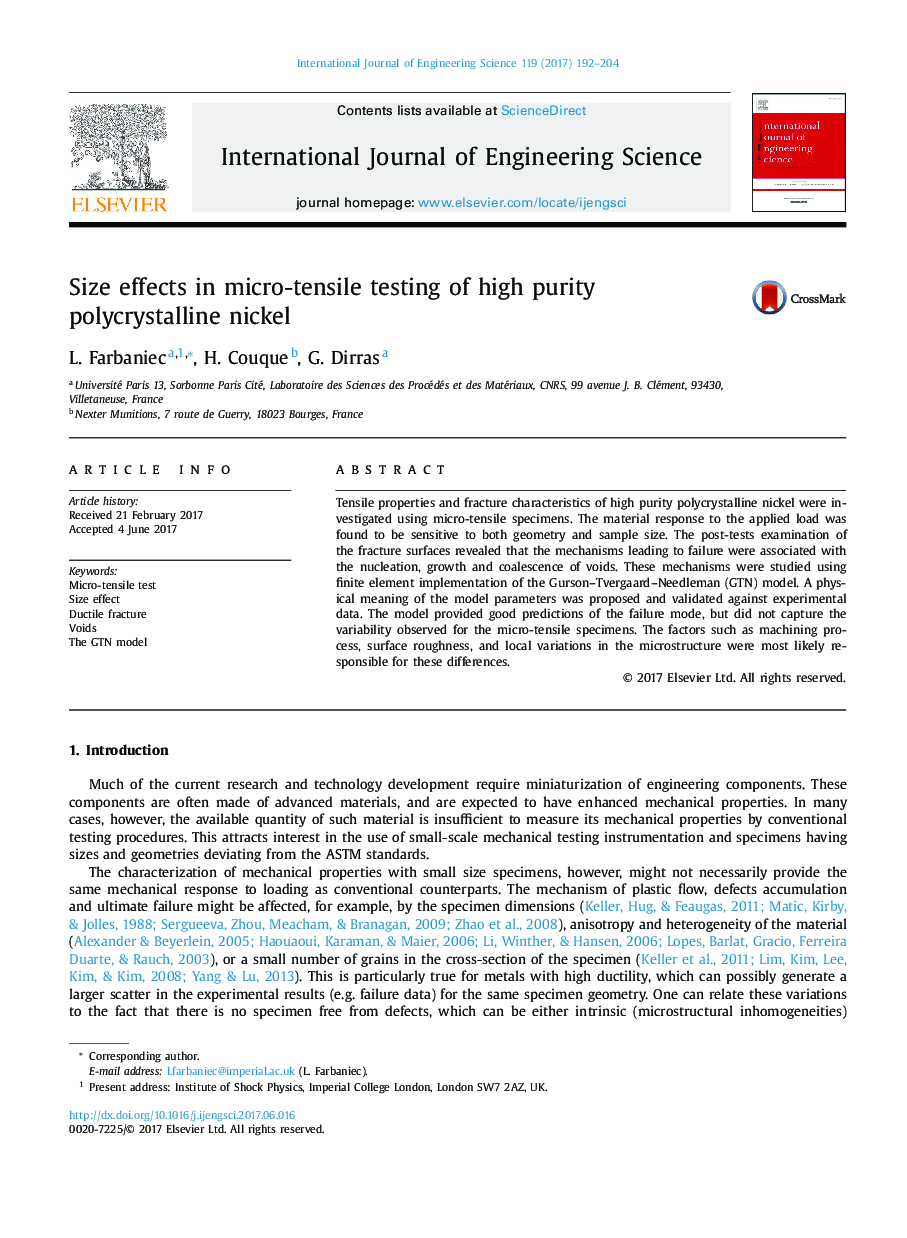| Article ID | Journal | Published Year | Pages | File Type |
|---|---|---|---|---|
| 5022697 | International Journal of Engineering Science | 2017 | 13 Pages |
Abstract
Tensile properties and fracture characteristics of high purity polycrystalline nickel were investigated using micro-tensile specimens. The material response to the applied load was found to be sensitive to both geometry and sample size. The post-tests examination of the fracture surfaces revealed that the mechanisms leading to failure were associated with the nucleation, growth and coalescence of voids. These mechanisms were studied using finite element implementation of the Gurson-Tvergaard-Needleman (GTN) model. A physical meaning of the model parameters was proposed and validated against experimental data. The model provided good predictions of the failure mode, but did not capture the variability observed for the micro-tensile specimens. The factors such as machining process, surface roughness, and local variations in the microstructure were most likely responsible for these differences.
Related Topics
Physical Sciences and Engineering
Engineering
Engineering (General)
Authors
L. Farbaniec, H. Couque, G. Dirras,
